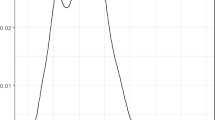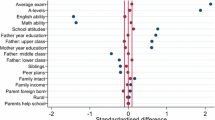Abstract
This article presents the results of empirical analysis of the influence of labour market factors on the private demand for university education in Ontario. Contrary to a widely held belief, the analysis indicates that the effect of youth unemployment upon enrolment demand is very weak. High unemployment, by itself, does not appear to drive youths into universities.
On the other hand, expected earnings upon completion of a degree is shown to have a strong positive impact upon enrolment demand, particularly for post-graduate students.
A 10 percent increase in the expected earnings of persons with post graduate degrees relative to persons with only bachelor's degrees is associated with more than a 20 percent increase in post-graduate enrolment. These findings are subject to qualifications regarding certain weaknesses in the data, as well as the usual problems of making inferences about expectation behaviour from ex post data.
One important policy implication of this study is that attempts to use educational spending as a contra-cyclical device may not be successful unless students are given extra inducement to enrol when unemployment is high. Second, the apparent responsiveness of enrolment demand to changes in earnings expectations of degree holders underscores the importance of providing good up-to-date information on earnings prospects. It should be emphasized, however, that this study dealt only with aggregate (undergraduate or postgraduate) enrolment, and further research is needed to examine the responsiveness of specific program and subject choices to variation in occupational earnings prospects.
Moreover, the responsiveness of student enrolment decisions to prospective earnings is only one of several factors — though a very important one — which must be taken into account in deciding upon the role of manpower considerations in educational planning.
Similar content being viewed by others
References
Campbell, R.; Siegel, B. N. (1967). “The Demand for Higher Education in the United States, 1919–1964”American Economic Review (June) 482–494.
Crean, John F. (1971) “Expected Rates of Return and the Demand for Education: Some Empirical Evidence.” Quebec: Groupe de recherche sur l'économie du secteur public. Mimeo.
Dodge, D. A.; Swan N. (1971). “Factors Influencing Career Choice of Students.” Paper presented before the Fifth Annual Meeting of the Canadian Economic Association, St. John's, Newfoundland, June 3.
Handa, M. L. (1972).Toward A Rational Educational Policy. Toronto, Ontario Institute for Studies in Education.
Handa, M. L.; Skolnik, M. L. (1973). “What Good is Benefit-Cost Analysis.” Toronto, Ontario Institute for Studies in Education, Department of Educational Planning, Occasional Paper (November).
Handa, M. L.; Skolnik, M. L. (1972). “Empirical Analysis of the Demand for Education in Canada,” in Sylvia Ostry, ed.,Canadian Higher Education in the Seventies. Ottawa: Economic Council of Canada.
Hoenack, Stephen A., (1971). “The Efficient Application of Subsidies to College Students,”American Economic Review 59.3, 302–311.
Holland, J.; Quazi, S.; Siddiqui, F.; and Skolnik, M. (1972).Manpower Forecasting and Educational Policy. A Report Prepared for the Commission on Post-Secondary Education in Ontario.
Killingsworth, Charles C. (1965). “Automation, Jobs and Manpower”. East Lansing, Michigan: Michigan State University, School of Labour and Industrial Relations, Reprint Series No. 61.
Podoluk, Jenny R. (1968) “Incomes of Canadians.” Ottawa: Dominion Bureau of Statistics, 1961 Census, Mimeograph.
Sloan, Frank A. (1971). “The Demand for Higher Education: The Case of Medical School Applicants”,Journal of Human Resources (Fall).
Turnovsky, S. J.; Watchter, M. L. (1971). “A Test of the Expectations Hypothesis Using Directly Observed Wage and Price Expectations.” University of Toronto Working Paper (October).
Author information
Authors and Affiliations
Rights and permissions
About this article
Cite this article
Handa, M.L., Skolnik, M.L. Unemployment, expected returns, and the demand for university education in Ontario: some empirical results. High Educ 4, 27–43 (1975). https://doi.org/10.1007/BF01569100
Issue Date:
DOI: https://doi.org/10.1007/BF01569100




